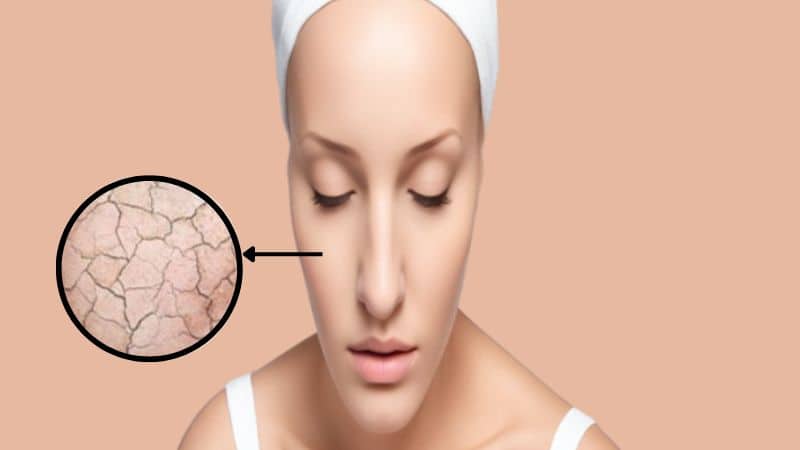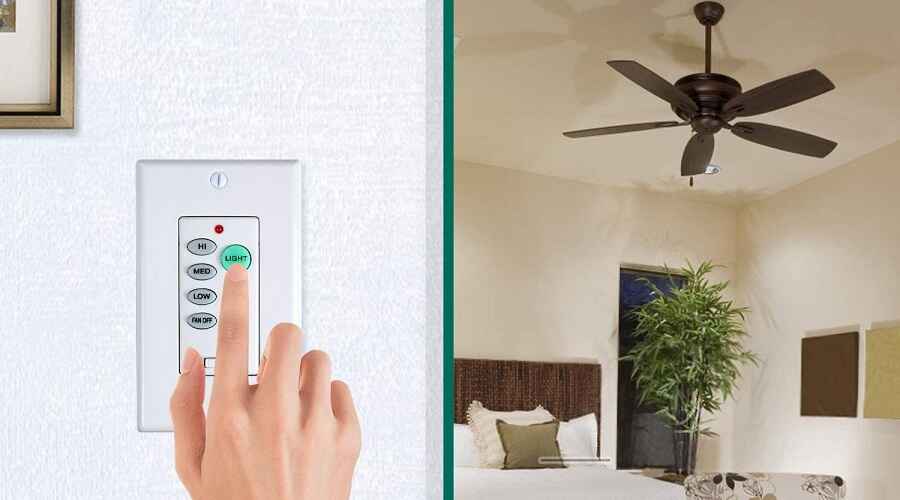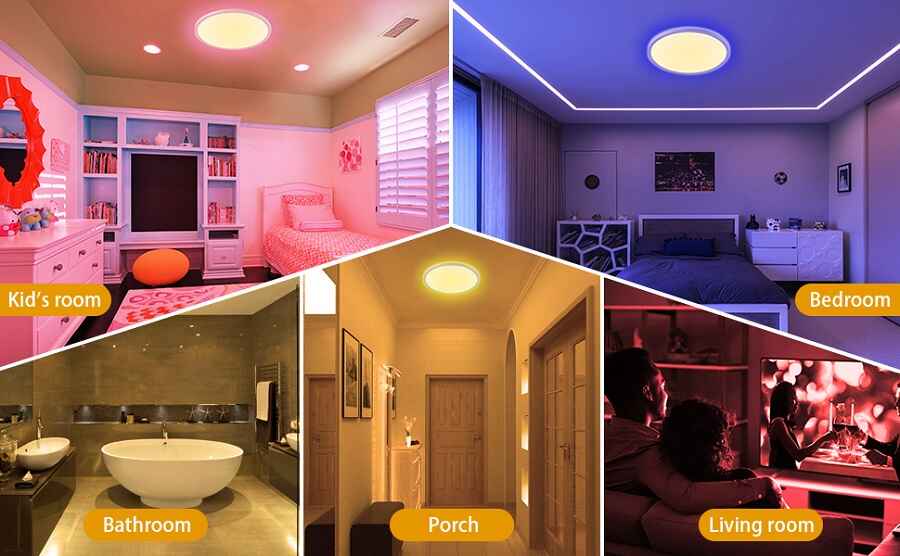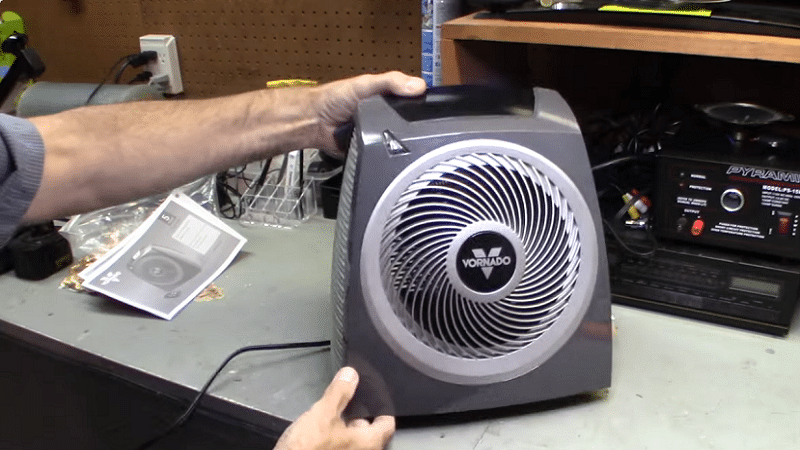Heaters are a staple in many households, especially during the colder months. They are an excellent way to keep your home warm and cozy, but have you ever wondered about the impact they can have on your skin? In this article, we’ll explore the potential effects of heaters on your skin and what you can do to protect yourself.
Quick Answer:
Yes, Your skin is badly damaged if you consistently use the heater, it will Heaters can cause skin dryness, irritation, and even burns if they come in direct contact with the skin.
The dry air generated by heaters can also cause dehydration, leading to itchy and flaky skin. To prevent these negative effects, it is essential to keep your skin moisturized and avoid prolonged exposure to the heat. Using a humidifier and applying a good moisturizer can help keep your skin healthy and hydrated during the winter months.

Are Heaters Bad For Your Skin? Key Points
Dehydration makes Dry Skin:
When heaters are in use, the air in the room becomes dry due to the lack of humidity. This can cause dehydration of the skin, leading to discomfort, itchiness, and inflammation. To avoid this, it is essential to drink plenty of water to keep your body hydrated.
Additionally, using a humidifier in your home can help maintain a proper humidity level, which will prevent the air from drying out and causing harm to your skin. A humidifier adds moisture to the air and can help keep your skin hydrated, especially during the cold, dry winter months when heaters are frequently used.
Redness and Sensitivity:
The heat generated by heaters can cause redness and sensitivity in the skin, particularly for individuals with sensitive skin. This can lead to flare-ups of skin conditions like rosacea and eczema.
Take regular breaks from heat sources and avoid prolonged exposure to the heat. Taking breaks will allow the skin to cool down and prevent irritation and inflammation. Additionally, using a moisturizer or lotion can help soothe the skin and reduce redness and sensitivity. It’s important to be mindful of these potential effects and take steps to protect your skin from excessive heat.
Toasted Skin Syndrome:
Toasted skin syndrome is a condition that can occur due to prolonged exposure to heat from sources such as space heaters, laptop batteries, or heating pads. This condition is characterized by discoloration of the skin, and it can be prevented by limiting your exposure to heat sources and taking regular breaks.
To avoid this condition, it is important to keep a safe distance from heat sources and avoid placing them directly on your skin. Taking regular breaks from heat sources can help prevent toasted skin syndrome and allow your skin to cool down. Being aware of the potential risks of heat exposure is important in maintaining the health of your skin.
Infection:
Do you know that low humidity levels caused by heaters can lead to dry skin and increase your risk of developing skin infections. This is because dry skin is more susceptible to cracks and openings that can allow bacteria to enter and cause infections.
To prevent this, it’s important to maintain proper ventilation in your home and limit the use of heating sources. Using a humidifier can also help to add moisture to the air and prevent dry skin. By taking steps to maintain the proper moisture levels in your home, you can reduce your risk of developing skin infections and keep your skin healthy.
Acne and Pimple Breakouts:
If your body is exposed to heater, it can cause skin to become dry due to the reduction of moisture in the air, which can lead to excess oil production and result in acne breakouts. To prevent this, it’s important to keep your skin hydrated and clean.
Drink plenty of water and use a moisturizer to keep your skin hydrated. Avoid using harsh chemicals on your skin and make sure to cleanse your face regularly to remove any dirt or oil buildup. By taking these steps, you can help prevent acne breakouts and keep your skin healthy, even during the colder months when heaters are often used.
Erythema Ab Igne:
Erythema ab igne is a skin condition that can develop from prolonged exposure to heat sources such as heaters, hot water bottles, and laptops. This condition is characterized by a reddish-brown discoloration of the skin and can be prevented by limiting your exposure to heat sources and taking regular breaks.
It’s important to monitor your skin for any signs of discoloration or rash and to seek medical attention if necessary. By taking preventative measures, you can help protect your skin and prevent the development of erythema ab igne.
Wrinckles & Damaged Skin:
Frequent exposure to heat sources can cause your skin to lose its elasticity and lead to the formation of wrinkles. To prevent this, it’s important to keep your skin clean, stay hydrated, and limit your exposure to heat sources.
Using a humidifier can also help add moisture to the air and prevent skin dehydration, which can exacerbate these issues. By taking proper precautions, you can enjoy the warmth and comfort of heaters without compromising the health of your skin.
Itching:
If the heater is used more than the standard usage, it will make the air in a room dry, leading to skin dehydration and itching. Additionally, high humidity levels caused by heating sources can encourage the growth of mold and dust mites, which can also cause itching.
To prevent itching, it’s important to maintain proper humidity levels and keep your skin hydrated. This can be done by drinking plenty of water and using a humidifier in your home. Additionally, taking regular breaks from heat sources and keeping your skin clean can help prevent itching and other skin irritations caused by heaters.
Premature Aging:
It is a common concern for many people, and exposure to dry, heated air can contribute to the development of fine lines and wrinkles. When the air lacks moisture, it can cause the skin to lose elasticity, which can lead to sagging and other signs of aging.
Keep your skin hydrated by drinking plenty of water and using a humidifier in your home. Moisturizing your skin regularly can also help maintain its youthful appearance. Protecting your skin from excessive heat and sunlight can also help prevent premature aging.
Are Heaters Bad For Your Skin? FAQs:
How to Mitigate the Effects of Heaters on Your Skin?
As the temperature drops, we all rely on heaters to keep our homes and offices warm and cozy. While heaters are a great way to stay comfortable during the colder months, they can also have negative effects on your skin.
The dry heat can cause your skin to become dry, itchy, and irritated. However, there are ways to mitigate the effects of heaters on your skin. In this article, we will discuss some tips to help keep your skin healthy during the winter season.
Use a Humidifier:
One of the most effective ways to combat the dry air caused by heaters is to use a humidifier. A humidifier adds moisture back into the air, which can help keep your skin hydrated and prevent irritation and inflammation.
Place a humidifier in the room where you spend the most time, such as your bedroom or living room, and use it regularly to maintain a healthy level of moisture in the air.
Moisturize Regularly:
Another important step in mitigating the effects of heaters on your skin is to moisturize regularly. Use a good quality moisturizer on your skin, especially during the winter months when the air is drier.
This will help keep your skin hydrated and prevent dryness and sensitivity. Look for a moisturizer that contains ingredients like hyaluronic acid and glycerin, which can help attract and retain moisture in the skin.
Drink Plenty of Water:
Staying hydrated is key to maintaining healthy skin, especially when the air is dry. Make sure to drink plenty of water throughout the day to keep your skin hydrated from the inside out. This will not only help your skin, but it will also benefit your overall health and well-being.
Avoid Sitting Too Close to Heaters:
While it may be tempting to sit right next to the heater to warm up quickly, try to maintain a safe distance from heaters to prevent your skin from becoming too hot and red. This can help prevent flare-ups of conditions like rosacea and eczema. If you’re using a portable heater, make sure to keep it at least three feet away from you.
How can I protect my skin from heater?
You must try to follow the safety precautions if you are using a space heater too much that will damage your skin. Your Dry skin can cause itching, flaking, and cracking, which can be uncomfortable and unsightly. To protect your skin from the heater, here are some tips to follow:
Switch off your heater when you can:
One of the most effective ways to protect your skin from the heater is to turn it off when you can. If you’re leaving your home or going to bed, consider turning down the thermostat or turning off the heater altogether. This will not only help your skin but also save on your energy bills.
Use a humidifier:
Another way to protect your skin from the heater is to use a humidifier. Heaters can dry out the air in your home, which can also dry out your skin. By adding moisture to the air, a humidifier can help your skin stay hydrated. You can place a humidifier in the room where the heater is being used or in your bedroom.
Stay hydrated:
Drinking enough water is essential for keeping your skin healthy and hydrated. When you’re exposed to heat, your body loses moisture, so it’s important to drink enough water to replace what’s lost. Make sure to drink at least 8-10 glasses of water a day to keep your skin hydrated.
Moisturize, moisturize, moisturize:
Moisturizing your skin is essential to protect it from the heater. Choose a moisturizer that is specifically formulated for dry skin, and apply it after you shower or bathe. You can also apply a moisturizer throughout the day as needed, especially to areas that are prone to dryness like your hands and face.
Do heaters cause acne?
When a heater is operating, it can reduce the humidity in the air, which can result in the skin feeling dry and tight. In response, the skin may produce more oil to compensate for the dryness, leading to clogged pores and acne breakouts.
The excess oil produced by the skin mixes with dead skin cells and other impurities, which can clog the pores and lead to the formation of blackheads, whiteheads, and pimples. The lack of moisture in the air can also cause irritation, making existing acne worse.
To minimize the impact of heaters on the skin, it’s recommended to use a humidifier in the room with the heater. This can help keep the air moist and prevent the skin from becoming too dry. Additionally, using a good quality moisturizer can help keep the skin hydrated and reduce the likelihood of oil overproduction.
It’s also important to use non-comedogenic skincare products that won’t clog the pores and cause acne. Avoid touching the face with dirty hands and keep the hair away from the face to prevent oil and dirt from transferring to the skin.
Heaters can indirectly cause acne by drying out the skin and promoting oil overproduction. To prevent acne breakouts, it’s important to maintain proper skincare hygiene and use a humidifier and moisturizer to minimize the impact of heaters on the skin.
What are the side effects of using a heater?
Using a heater can have several side effects on our health and wellbeing. One of the most common side effects is that it can dry out the skin, leading to issues such as dryness, irritation, and acne.
In addition to skin issues, heaters can also burn up oxygen from the air, which can lead to headaches, fatigue, and nausea. This is because the human body needs a constant supply of oxygen to function properly, and a lack of oxygen can cause these symptoms.
Heaters can also aggravate existing respiratory problems such as asthma and allergies, as they can circulate dust and other allergens in the air. The dry air produced by heaters can also dry out the mucous membranes in the nose and throat, making it harder to breathe.
Prolonged exposure to heaters can also lead to overheating, which can cause dehydration, heat exhaustion, and even heat stroke in extreme cases. This is especially true in poorly ventilated areas, where the hot air produced by the heater can become trapped and cause the temperature to rise rapidly.
To minimize the side effects of using a heater, it’s recommended to use it in a well-ventilated area, and to ensure that it’s not left on for extended periods of time. Using a humidifier can also help add moisture to the air and prevent the skin from becoming too dry.
Overall, while heaters can provide warmth and comfort during the colder months, it’s important to be aware of their potential side effects and take steps to minimize them.
Are Propane Heaters really bad for health?
Propane heaters can pose a serious health risk due to the production of carbon monoxide gas. Carbon monoxide is a colorless, odorless gas that is extremely toxic and can cause a range of health problems.
Exposure to carbon monoxide can lead to symptoms such as headaches, fatigue, nausea, dizziness, confusion, and irritability, which can mimic the flu. Continued exposure to high levels of carbon monoxide can cause more severe symptoms such as vomiting, loss of consciousness, brain damage, heart irregularities, breathing difficulties, muscle weakness, and even death.
Carbon monoxide poisoning can be particularly dangerous because the symptoms are often misdiagnosed or attributed to other illnesses, leading to delayed treatment and potentially serious consequences.
To prevent exposure to carbon monoxide, it’s important to properly ventilate your home when using a propane heater. This can be achieved by opening windows or using a fan to circulate air. It’s also recommended to have a carbon monoxide detector installed in your home to alert you to any dangerous levels of gas.
All in all propane heaters can be bad for your health due to the production of carbon monoxide gas. To minimize the risk of exposure, it’s important to properly ventilate your home and install a carbon monoxide detector.
Conclusion:
While heaters are a useful way to stay warm during the colder months, they can have potential negative effects on your skin. By taking the necessary precautions and staying hydrated, you can protect your skin and stay comfortable all winter long.





0 Comments